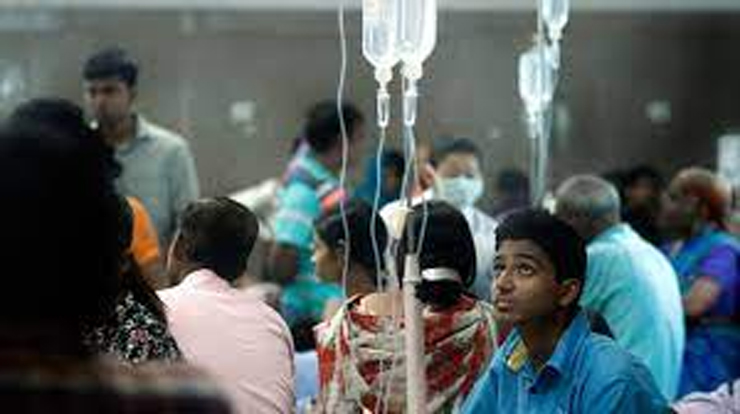-1733887286300.webp)
The state of Telangana is grappling with an alarming surge in dengue cases this year, spotlighting the growing public health challenge posed by vector-borne diseases. According to data from the National Centre for Vector Borne Diseases Control (NCVBDC), the state recorded a staggering 9,761 dengue cases by October 31, surpassing the previous year’s total of 8,016 cases. A sharp spike was observed in September and October, with over 3,000 new cases reported in just two months.
Table of Content:-
Seasonal Surge in Dengue Cases
Dengue fever, transmitted by Aedes mosquitoes, has become a recurring health concern in Telangana and across India. The peak transmission period coincides with the monsoon and post-monsoon seasons, spanning from July to mid-November. These months create ideal conditions for mosquito breeding, as stagnant water from heavy rains becomes a fertile ground for larvae to thrive. By August 31, the state had already reported 6,405 dengue cases, with the subsequent two months seeing an additional 3,356 cases, underscoring the rapid escalation of the outbreak.
-1733887381073.jpg)
Additional Vector-Borne Disease Trends
While dengue cases have surged, other vector-borne diseases have also shown concerning trends. Malaria cases, though relatively low, rose slightly from 200 in August to 235 by the end of October. Despite this, the number remains lower compared to 2023, which saw 420 malaria cases.
Also Read: UPSC CSE Mains Result 2024 Declared; How To Cope With Exam Results Disappointment
Chikungunya, another mosquito-borne illness, displayed a significant increase during the same period. Cases climbed from 178 as of August 31 to 435 by October 31. By November, the total number of chikungunya cases reached 447, following the testing of over 13,000 samples. This sharp rise highlights the multifaceted nature of the health crisis Telangana is currently facing.

Health Department's Response
In response to the escalating dengue and chikungunya cases, the Telangana Health Department has intensified its disease surveillance and mosquito control measures. According to a November update by the Director of Public Health and Family Welfare, the government has focused on district-level coordination, enhanced vector control efforts, and strengthened healthcare infrastructure to tackle the outbreak effectively.
Also Read: Noida Startup Fires Employees Over 'Stress' Claims: Tips to Recover from Work Stress
Testing facilities have been expanded, ensuring the availability of diagnostic kits and essential medications in healthcare centres across the state. Public awareness campaigns have been initiated to educate communities about preventive measures, such as eliminating stagnant water and using protective clothing and insect repellents.
-1733887424388.jpg)
Urgent Need for Public Cooperation
While the government has ramped up its efforts, the success of disease mitigation largely depends on public participation. Simple measures such as avoiding water accumulation in households, properly covering water storage containers, and maintaining cleanliness can significantly curb mosquito breeding. The use of mosquito nets and repellents can also reduce the risk of mosquito bites.
The Path Forward
The rise in dengue cases in Telangana serves as a wake-up call for robust, year-round vector control strategies. Beyond monsoon preparedness, continuous community engagement, research into mosquito behaviour, and investment in healthcare resources are crucial to mitigating future outbreaks. The state’s proactive measures, coupled with public awareness, will be key to overcoming this health challenge.
As the state battles this intensified health crisis, a coordinated effort between government authorities, healthcare providers, and citizens remains the cornerstone of effective disease control.
Also watch this video
Read Next
Taylor Swift Faces Possible 'Health Risk' After Eras Tour Finale; Understanding The Let-Down Effect
How we keep this article up to date:
We work with experts and keep a close eye on the latest in health and wellness. Whenever there is a new research or helpful information, we update our articles with accurate and useful advice.
Current Version